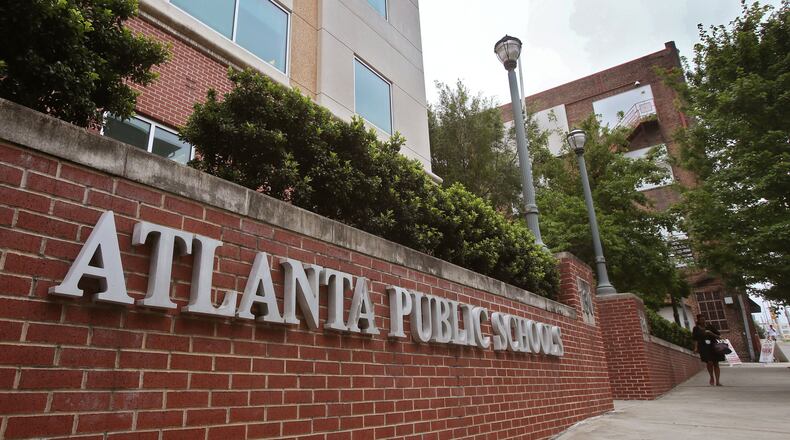Atlanta Public Schools officials are bracing for big cuts — from delaying major textbook purchases to freezing salaries and trimming school and the central office budgets.
The chief financial officer, Lisa Bracken, has projected the district will receive about $813.5 million in revenue for the fiscal year that begins July 1. That's a $52 million decrease, or 6% drop, from the current year.
The gloomy forecast is driven by expected cuts to state education funding, which makes up roughly a quarter of the district’s total general fund revenue this year. APS expects its largest source of money — local property taxes — to increase slightly. But that’s not enough to offset the expected state cuts, and officials believe the financial woes caused by the coronavirus pandemic will impact property tax revenue more in future years.
“We are currently planning for what looks like the worst economic downturn since the Great Depression,” Bracken told board members earlier this month.
To prepare for the year ahead, the district has frozen much of its spending. Starting May 1, APS cut off purchasing cards and spending requests must go through a special process.
Such measures could help grow the district’s fund balance to $102 million, according to a conservative estimate, which could offset some budget decreases next year. The district also will receive about $23 million in federal relief funds that can be used to pay for online learning, school meals and other work.
But Superintendent Meria Carstarphen told staff in a recent memo that the district will need to do "serious belt-tightening" to prevent staff cuts or furloughs. If furloughs are needed, the district could look at cutting one or two work days for some employees during Thanksgiving break. Training days also could be converted to furlough days to avoid disrupting student instruction.
The proposed budget reductions include freezing employee pay, postponing a big order for new English language arts textbooks and a hiring freeze for central office jobs that aren't linked to the district's coronavirus response. Schools also would lose their rainy day funds and get a 1.8% cut to their per-pupil allocation.
The plan is for schools to cut expenses such as travel. Bracken said the district will work with schools that already have lean budgets to avoid affecting employees directly.
Board member Michelle Olympiadis, who leads the budget commission, said closing the gap is going to require frank conversations.
“Nobody wants to let anyone go. You want to hold on,” she said. “I don’t know how we are going to find all those non-essential pieces to make up the difference. I’m willing to listen to the administration.”
District officials will work in the coming weeks to prepare a budget for the board’s tentative adoption on June 1. Final approval would follow later that month after public hearings.
About the Author
The Latest
Featured



